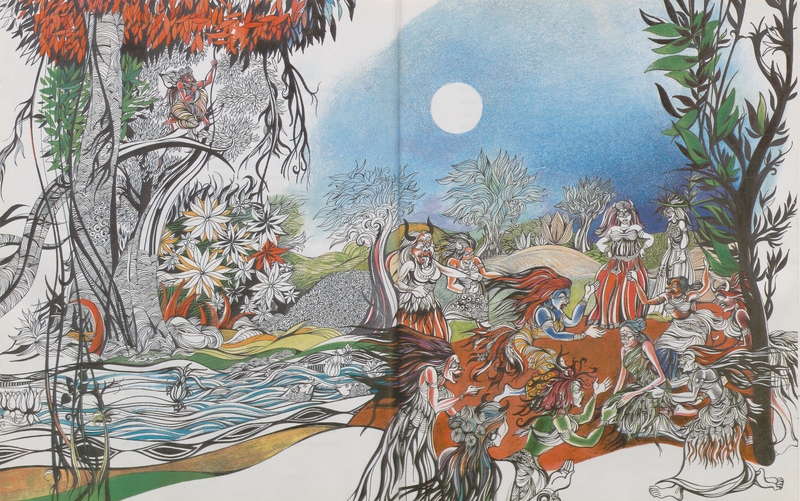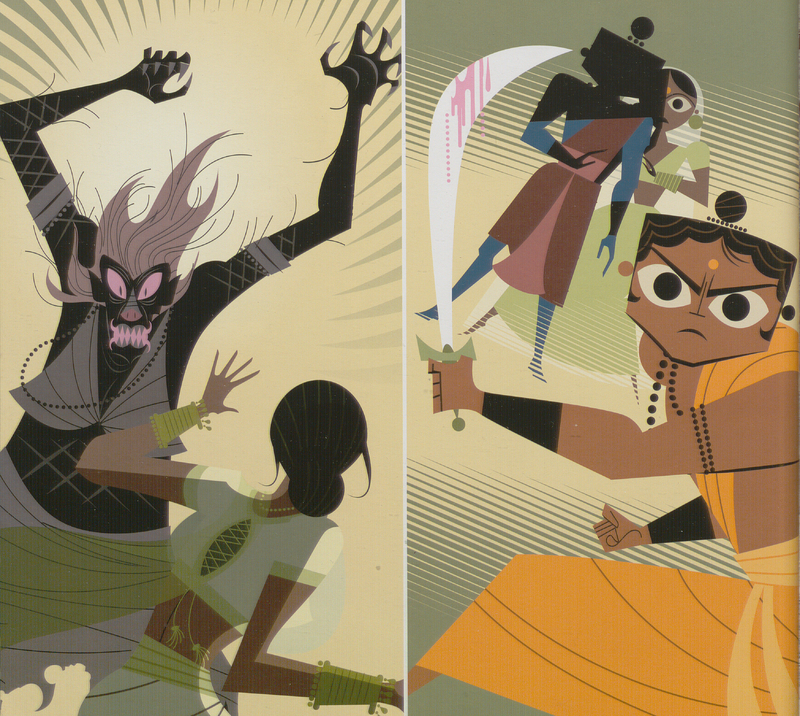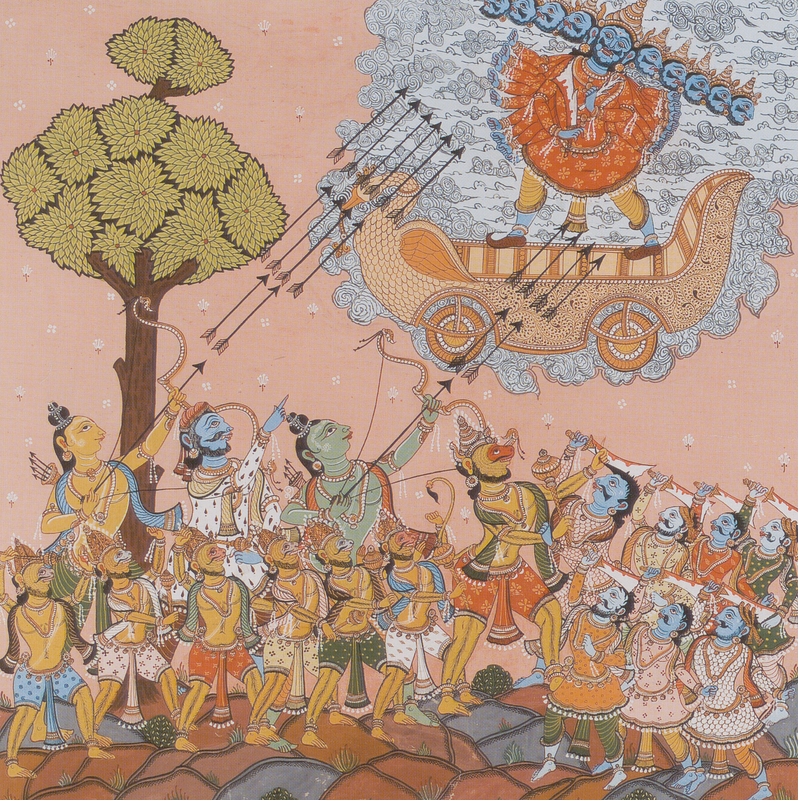Rama's Enemies
Shurpanakha
Rama was handsome, the rakshasa woman was ugly, he was shapely and slim of waist, she misshapen and potbellied; his eyes were large, hers were beady, his hair was jet black, and hers the color of copper; he always said just the right thing and in a sweet voice, her words were sinister and her voice struck terror.
— "The Forest" 16.10-16.15
The story of Ravana, king of the rakshasas, or demons, becomes intertwined with Rama’s because of his wicked sister, Shurpanakha. The female rakshasa comes across Rama in the forest and is instantly smitten with the handsome traveler. She disguises herself as an attractive young woman and attempts to seduce Rama. He does not fall for her trick, so, hurt and embarrassed, Shurpanakha attacks Sita in her true, monstrous form. Rama and Lakshmana fight her off, but a dangerous feud has already begun.
Shurpanakha complains about the incident to her brother. To ensure Ravana’s cooperation in her revenge, she cleverly describes Sita’s beauty in awe-struck detail, which immediately piques the rakshasa king’s interest. He decides that he must have Sita, so he kidnaps her. This crime serves as the inciting event for the remaining drama.
Shurpanakha's expert manipulation of Ravana parallels Manthara’s ability to quickly turn Queen Kaikeyi against Rama. Neither rakshasa nor maidservant had the ability to achieve their dishonorable goals on their own, so they called on powerful allies under false pretenses and played to their weaknesses — Kaikeyi’s desire to maintain her high status and Ravana’s lust.
Ravana
He would disrupt sacrifices at their climax, then murder the brahmans. He was savage and wicked, cruel and ruthless, delighting in the misfortune of others. He was Ravana, "he who makes all creatures wail," the terror of all the worlds.
— "The Forest" 30.20
The Ramayana enjoys great popularity not only because of its noble hero, but because of its cruel villain. The ten-headed rakshasa king Ravana engages in so many nefarious actions partly due to his belief that his is unstoppable. Due to Ravana's period of intense penance, the god Brahma once gave Ravana a boon. Ravana took advantage of the boon to be safe from any supernatural harm. However, he remains vulnerable to harm from mortals. This did not appear to be an issue until Rama, a god in mortal form, became his enemy.
Ravana's boon leads him to engage in reckless behavior, such as kidnapping Sita. Although this crime eventually leads to his destruction, at first, everything goes smoothly for the rakshasa king. He sends a rakshasa in the form of a beautiful golden deer to Sita, Rama, and Lakshmana's camp, knowing that Sita will want the lovely creature for herself. When Rama is away hunting, Ravana makes it seem as the hero screamed in agony, which causes Lakshmana to run and help his brother. This leaves innocent Sita alone. Ravana disguises himself as a beggar to gain her trust, then quickly kidnaps her before Rama returns.
Had Ravana not kidnapped Sita, Rama would have not found cause to attack him and his kingdom. Some of his advisors explicitly caution him against kidnapping Sita, such as Ravana's brother, Vibhishana. When Ravana foolishly ignores this advice, Vibhishana joins Rama's army instead, and he is crowned king of Lanka once Ravana is defeated.
Ravana's story serves as a powerful lesson in ego. If he had considered mortals to be worthy, dangerous opponents, he would have had protection against them; if he had listened to his family, he would have avoided a catastrophic war.
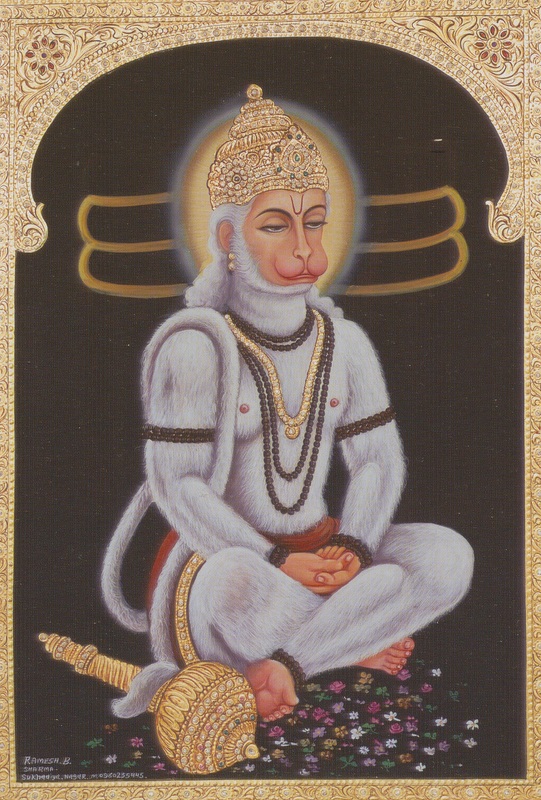
Loyal Allies
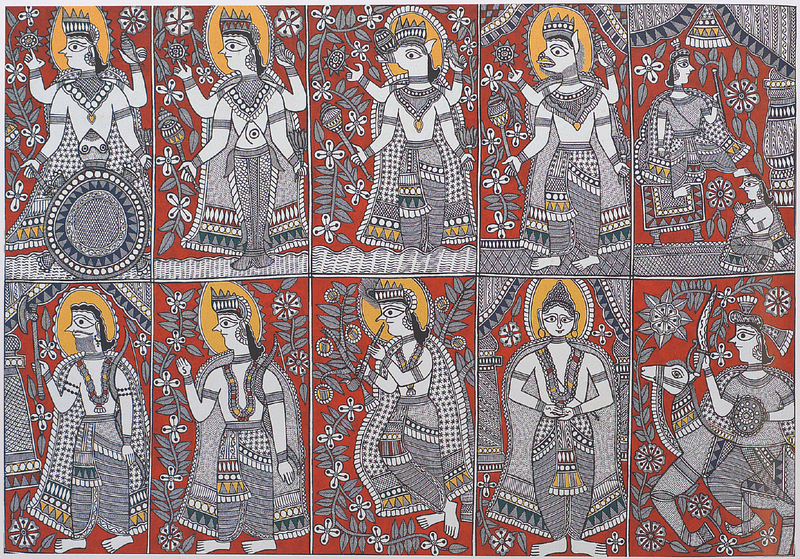
Divine Power

